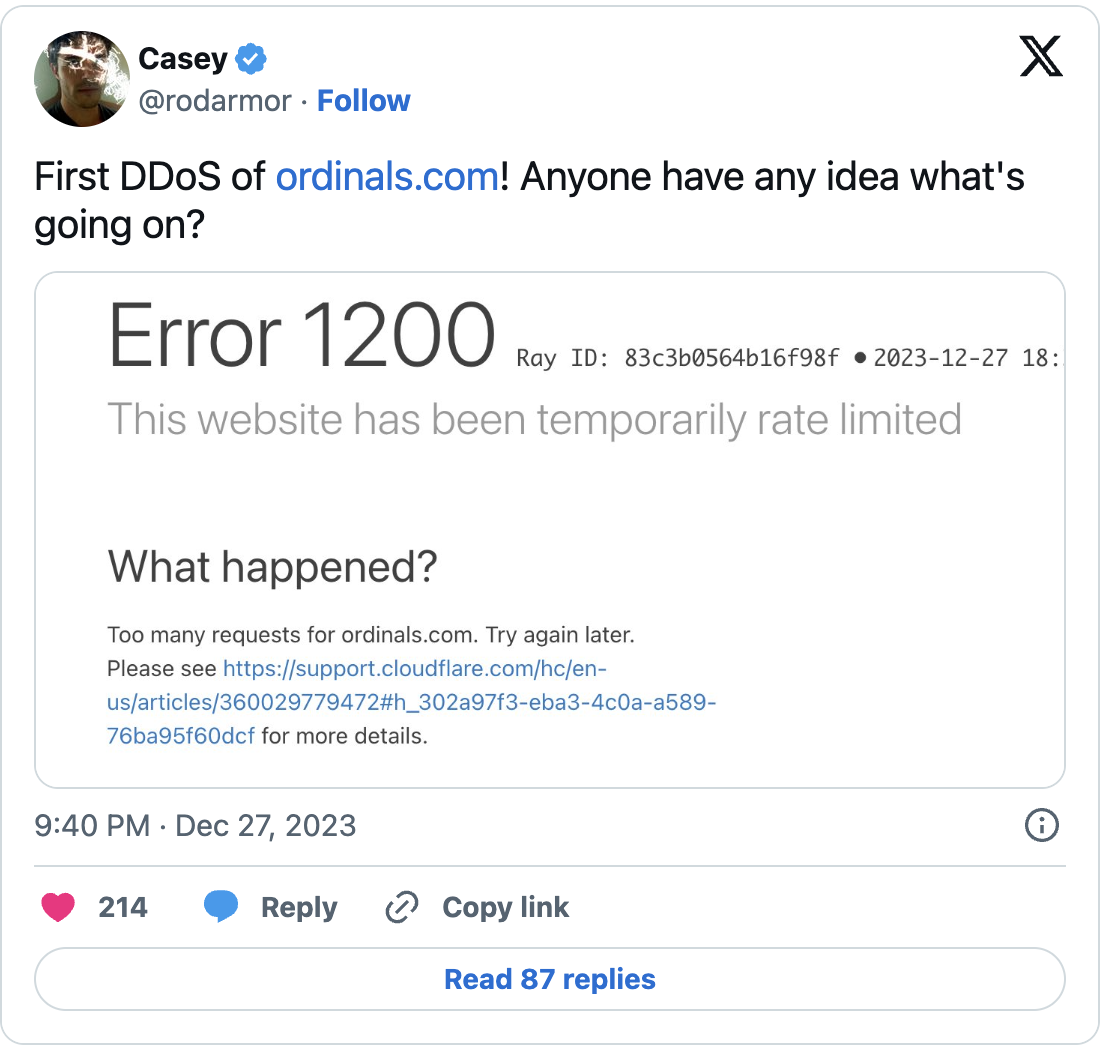Bitcoin Ordinals’ exposure to a DDoS attack led to the website timing out. The hype around Inscriptions has been criticized for creating congestion on the Bitcoin network. On December 27th, Ordinals’ creator Casey Rodarmor claimed that the website experienced its first attack since its launch in January.
Attention Drawn to DDoS Attack
A DDoS attack is known as a malicious spam attempt that disrupts normal traffic on a targeted server or network by overwhelming it with internet traffic. No development occurred on the Ordinals website, and it is currently offline.
Some critics found it amusing that the Bitcoin Ordinals website, especially the Ordinals Inscriptions area, was thought to be doing the same thing on the Bitcoin network. Among the critics was the founder of Bitcoin mining company OCEAN, Luke Dashjr, who pointed out the hypocrisy of calling it a DDoS attack:
“How dare you call this a DDoS. I’m sure everyone involved is paying their internet bills. I’m not supporting DDoS, just pointing out the hypocrisy.”

Continued Reactions to the Ordinals Space
The latest DDoS attack came just one day after Taproot Wizards’ chief technology officer Rijndael launched a script on December 26th that allegedly allowed data operators who hate Ordinal to censor Ordinals blocks in the Bitcoin ecosystem.
This move was seen as a reaction to critics of Ordinals, essentially telling them to shut up or put up. Blockstream’s Director of Research, Andrew Poelstra, defends that Ordinals, whether spam or not, does not harm the Bitcoin network:
“Ordinals, even if they disproportionately affect the fee market, are a small part of the overall Bitcoin economy and do not pose a significant threat to displace Bitcoin in its own network.”
Poelstra acknowledged that there is no technical way to remove Ordinals from the Bitcoin ecosystem but suggested that NFT collections through Inscriptions are a passing fad.










